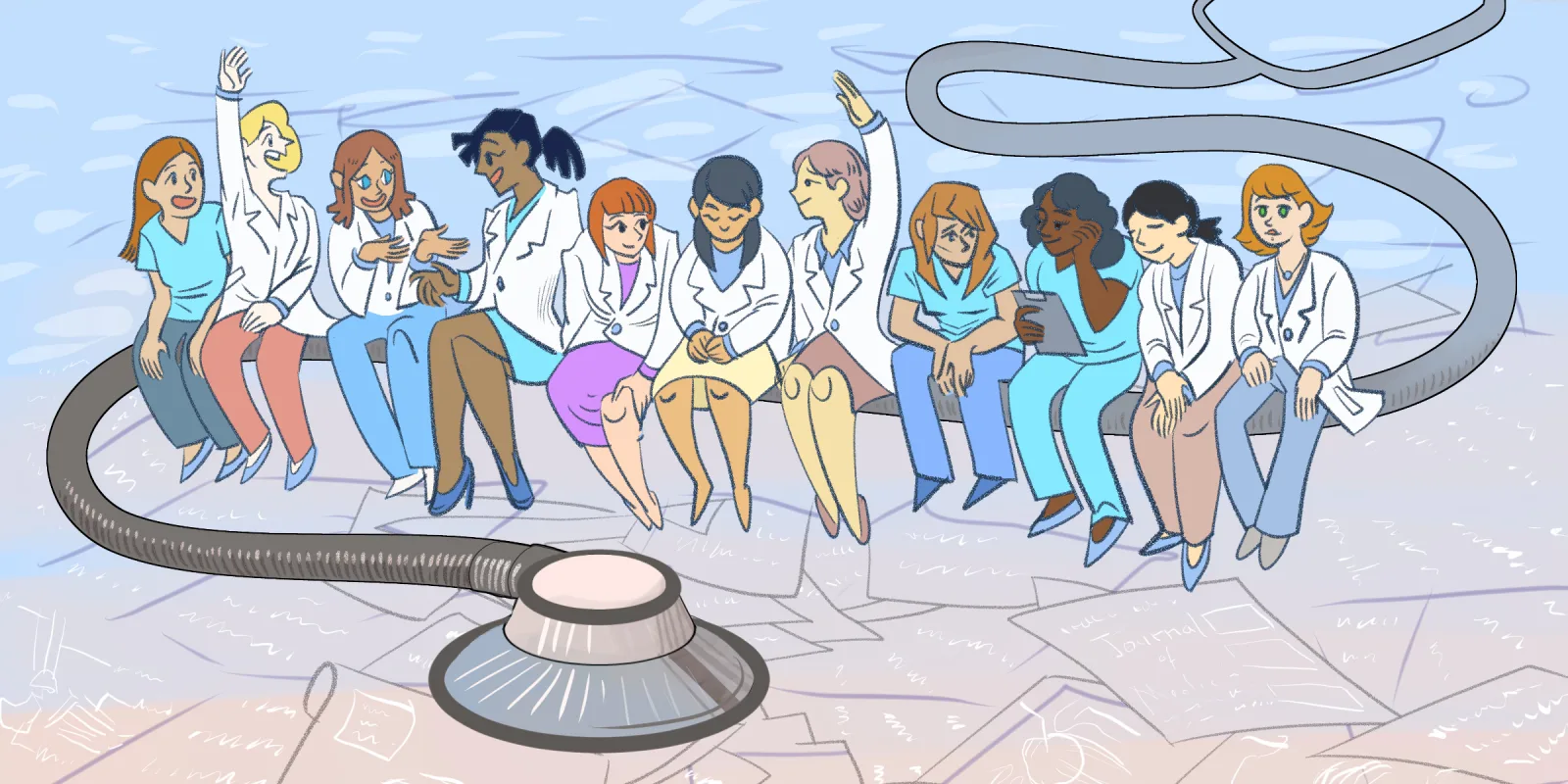Betsy Grunch, MD is a neurosurgeon in Gainesville, GA who regularly shares her experience as a woman in surgery on her thriving TikTok and Instagram accounts. Dr. Grunch has connected with millions of social media followers, and has even collaborated with other women in medicine in some of her content.
In an interview with Doximity, Dr. Grunch shares her perspective on the challenges and triumphs of being a woman in neurosurgery and imparts wisdom to early-career women in the field.
Doximity: What advice would you give to an early-career woman in surgery?
Betsy Grunch, MD: Work-life balance is incredibly important to a successful career. I see women in particular burn out from the demands of a surgical career (or choose another specialty altogether). I believe some of that stems from the stressors of trying to have a family at the time of our lives that our career has the highest amount of growth and uncertainty. Learning how to balance this all can be quite demanding and challenging, and sometimes seems unachievable. Having a backbone of supportive family and friends can be incredibly useful, and having supportive colleagues is equally as important. If you do not have people in your life that support your growth, they don’t deserve you. Learning how to separate yourself from toxicity and nurture your personal growth is one of the cornerstones of success.
Dox: How has neurosurgery changed for women since you began?
BG: Neurosurgery remains an incredibly male-dominated field. Less than 10% of the field is women, and the growth and transition of this is far away from other specialities. Medical school applicants have transitioned to being more women than men, but specialties such as orthopaedics and neurosurgery have not even begun to reach that level. Change begets change. Having women and men in the field that encourage the growth of women in the field will be the key to this change. I believe that as the “old-school” persona of the neurosurgeon personality/stigma ages out, we will slowly change the specialty. I can already see this change in the past 15 years of my career in this field, but it is far away from where it should be. I hope to continue to represent the face of that change.
Dox: What one change do you think is most important for women in medicine to accomplish?
BG: Impostor syndrome is so prevalent in professional women. (I have read articles that up to 70% of women CEOs have experienced this during their career.) I think it is incredibly important for any person (man/woman, professional/non-professional) to realize that they have earned the right to be where they are in life. We all work hard and sacrifice a part of our lives to be at this stage of our careers. Once you can tell yourself that, you will have the confidence to grow. You earned that. Don’t convince yourself otherwise.
Dox: Who was your biggest supporter during your career? Why?
BG: From the beginning, my biggest supporter has always been my mom. She raised me to be the type of woman that never thought anything was unreachable or unobtainable. I grew up in a blue collar family. My mom was a disabled police officer from a spinal cord injury received in the line of duty, and we didn’t have the money to pay for my education, but she didn’t let that deter me from my goal of becoming a surgeon. We applied for scholarships, grants, and loans in order to make this dream come true.
In residency, I met my husband, and he quickly became my other backbone of support throughout the completion of my residency and the development of my practice. Being an on-call surgeon and building a practice from the ground up, the lifestyle/hours can be quite hectic. We maintain a healthy line of communication to develop my career while also raising a family together. I wouldn’t be where I am today without either of them.
Dox: What could you not live without in your daily practice?
BG: I could not survive without my teammates. My team includes my medical assistants and physician assistants in the office, as well as my PAs, nurses, and surgical techs in the OR. They are crucial to formulating an efficient, successful, and growing practice. I am only the leader of the team; the entire practice relies on each member of the team in order to be successful. Additionally, on the social media side of things, my brand manager enables me to participate and be highly engaged in that part of my career. On a related note, I believe focusing on the development, growth, and relationship of each member is paramount to a high-functioning team.
Dox: Is there a message you would like to impart to the medical community?
BG: Be authentic; embrace yourself. Remember that you are worthy and deserve respect.
This interview has been lightly edited for length and clarity. Read more about our conversation with Dr. Grunch here.
Dr. Grunch has no conflicts of interest to report.
Image by April Brust







